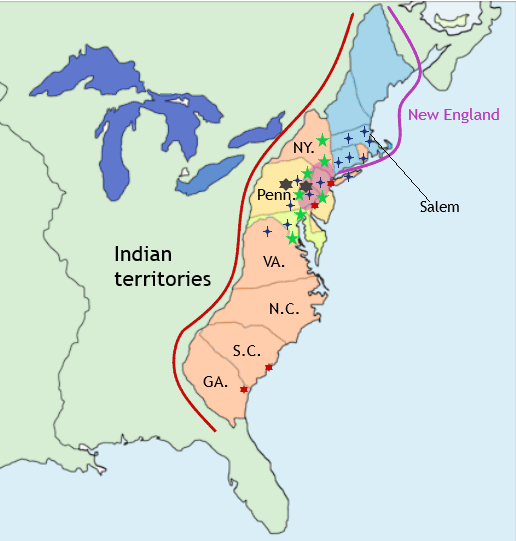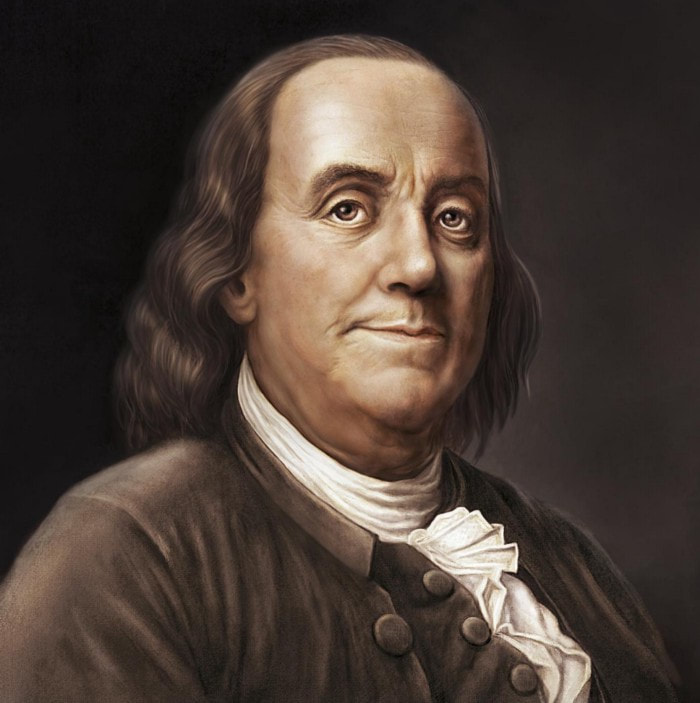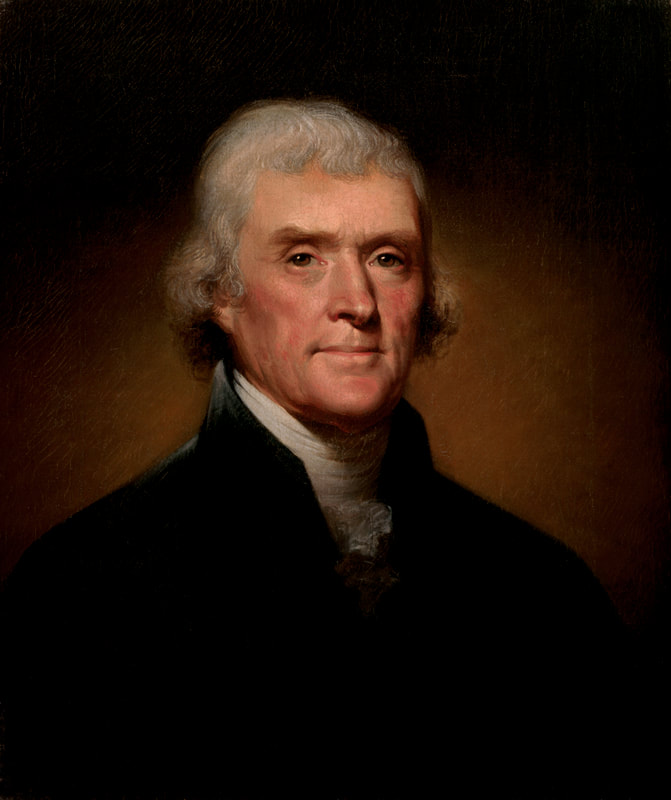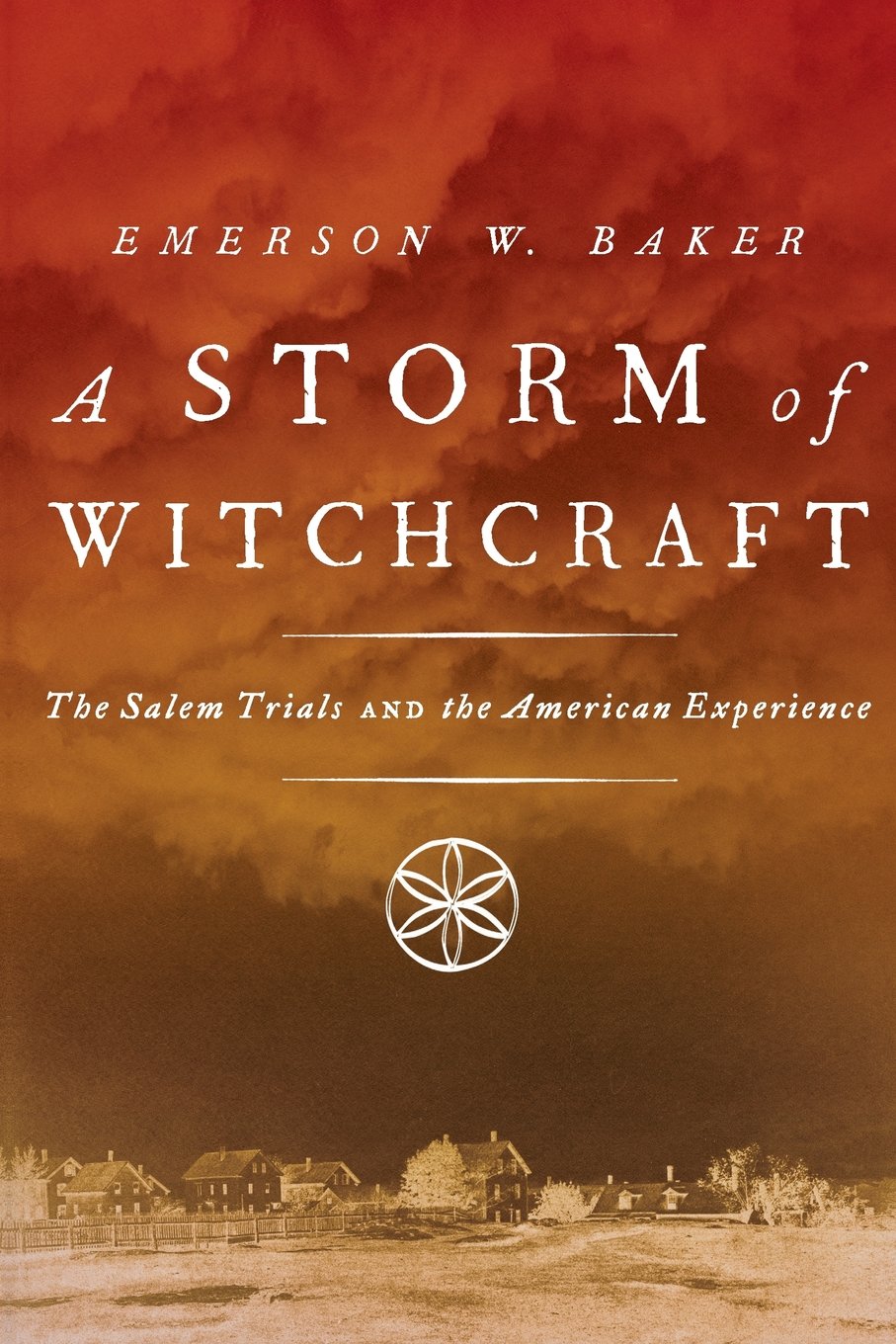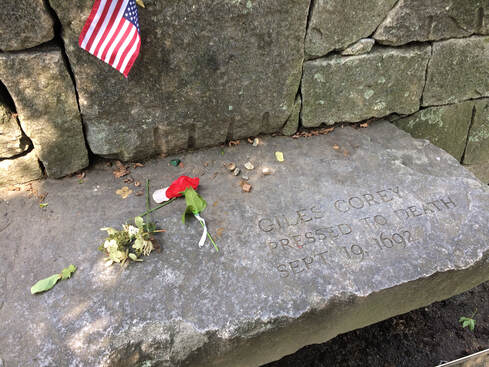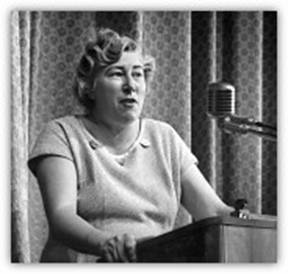Chapitre 2 | La religion aux Etats Unis
|
|
|
Afin de comprendre la place qu'occupe la religion aux Etats Unis, je vous conseille de commencer par lire le cours que j'ai rédigé avant d'étudier les documents proposés. On ne peut apprécier les documents historiques et civilisationnels qu'en maîtrisant le contexte dans lequel ils s'inscrivent.
You need to acquire some background information in order to fully understand the documents you are expected to study and analyse. You will find some interactive exercises at the bottom of the page.
You need to acquire some background information in order to fully understand the documents you are expected to study and analyse. You will find some interactive exercises at the bottom of the page.
|
|
Le cours |
Introduction
Although there is certainly a religious background to it, the American revolution – which comes within the scope of the Enlightenment - is first and foremost a political revolution. The Founding Fathers chose the people and their sovereignty as the cornerstone of the constitutional structure: We the People of the United States, in Order to form a more perfect Union, establish Justice, insure domestic Tranquillity, provide for the common defence, promote the general Welfare, and secure the Blessings of Liberty to ourselves and our Posterity, do ordain and establish this Constitution for the United States of America”. Eleven years after the Declaration of Independence, which set in stone the breaking with the British monarchy, the Constitution drafted in 1787 during the Convention in Philadelphia banish any idea that might suggest that power is derived from God. It is the people, and only the people, that are sovereign. With the American Constitution the power no longer comes from above, but from the people themselves.
Although there is certainly a religious background to it, the American revolution – which comes within the scope of the Enlightenment - is first and foremost a political revolution. The Founding Fathers chose the people and their sovereignty as the cornerstone of the constitutional structure: We the People of the United States, in Order to form a more perfect Union, establish Justice, insure domestic Tranquillity, provide for the common defence, promote the general Welfare, and secure the Blessings of Liberty to ourselves and our Posterity, do ordain and establish this Constitution for the United States of America”. Eleven years after the Declaration of Independence, which set in stone the breaking with the British monarchy, the Constitution drafted in 1787 during the Convention in Philadelphia banish any idea that might suggest that power is derived from God. It is the people, and only the people, that are sovereign. With the American Constitution the power no longer comes from above, but from the people themselves.
A | The original paradox:
However, when the Puritans left England in the 17th century to found New England, they were motivated by religious purposes. Indeed, according to Puritan theology, life was a struggle between God and Satan. This belief made Puritans quite conscious of supernatural forces in their daily lives. Should diseases afflict the Native Americans, they saw it as the will of God. They also believed that they were a people chosen by God and that God gave them the mission to preserve & protect “pure” Christianity in the New World. They believed to be a people sent on a providential mission to build a civilization from scratch where Protestantism would be purified. Puritans left England in order to build a world in line with the Bible where they could worship with more purity. As a consequence, their vision of politics was closely influenced by religion itself.
Their endeavours in America stemmed from the idea that they had made a commitment to God, what they called “a covenant with God”. In other words, a promise they made to God.
During the 17th century, this theocratic ideal of society - that the Puritans had sought to achieve by sailing across the Atlantic - prevailed in each of the 13 British colonies and led to discriminations against religious minorities. In Massachusetts (New England), the people that opposed Puritanism were called “dissenters” and were persecuted by the authorities, and as for Catholicism, it was simply forbidden. Among the excesses of puritanism, it is worth mentioning the Salem With Trial, one of American’s darkest time when 200 people were accused of practising witchcraft and 20 were killed. (1692-1693)
Their endeavours in America stemmed from the idea that they had made a commitment to God, what they called “a covenant with God”. In other words, a promise they made to God.
During the 17th century, this theocratic ideal of society - that the Puritans had sought to achieve by sailing across the Atlantic - prevailed in each of the 13 British colonies and led to discriminations against religious minorities. In Massachusetts (New England), the people that opposed Puritanism were called “dissenters” and were persecuted by the authorities, and as for Catholicism, it was simply forbidden. Among the excesses of puritanism, it is worth mentioning the Salem With Trial, one of American’s darkest time when 200 people were accused of practising witchcraft and 20 were killed. (1692-1693)
|
However, although Puritanism remained the dominant religious and political force in New England, what people believed in mainly depended on where they lived:
|
On the brink of the revolution, no particular religious group had managed to stand out and prevail over the others beyond the place where it was first introduced by settlers. During the Convention in Philadelphia, this profusion of religious beliefs throughout the thirteen colonies, give the Founding Fathers the idea of a new religious conception: Deism or The Rational Religion of Deism. Deism stressed the idea of religion as a moral system. It affirms that God created the universe but he does not take part in it, nor does he intervene in human life. God is seen as a non-interventionist creator.
The most influential text arguing for the philosophical position of deism is probably Thomas Paine's work The Age of Reason. [1]
Thomas Paine – a British philosopher who promoted American independence from Britain, states:
Thomas Paine – a British philosopher who promoted American independence from Britain, states:
I believe in one God, and no more; and I hope for happiness beyond this life.
I believe in the equality of man; and I believe that religious duties consist in doing justice, loving mercy, and endeavouring to make our fellow-creatures happy.
But, lest it should be supposed that I believe many other things in addition to these, I shall, in the progress of this work, declare the things I do not believe, and my reasons for not believing them.
I do not believe in the creed professed by the Jewish Church, by the Roman Church, by the Greek Church, by the Turkish Church, by the Protestant Church, nor by any church that I know of. My own mind is my own church.
All national institutions of churches, whether Jewish, Christian or Turkish, appear to me no other than human inventions, set up to terrify and enslave mankind, and monopolize power and profit.
I do not mean by this declaration to condemn those who believe otherwise; they have the same right to their belief as I have to mine. But it is necessary to the happiness of man that he be mentally faithful to himself. Infidelity does not consist in believing, or in disbelieving; it consists in professing to believe what he does not believe.
[1] Thomas Paine, The Age of Reason; Being an Investigation of True and Fabulous Theology, 1794, 1795,1807
B | The Convention of Philadelphia and Jefferson’s metaphor of “A Wall of Separation”.
It is true that the Declaration of Independence did mention that our unalienable human rights were bestowed upon us by our “Creator”. (cliquez-ici pour le cours sur la Déclaration d'indépendance). However, there is absolutely no mention of God or of a Supreme Being in the 1787 Federal Constitution. During the Convention in Philadelphia, the Founding Fathers agreed to promote Freedom of Religion and they refused to grant the Federal Government the power to control what American citizens should believe or not, worship or not.
The thought process behind all this is clear: for the Founding Fathers religion is, and has always been, a divisive factor in society. Therefore, religious beliefs should be put aside of the political life. The spiritual side of life should be left to the individual. The Bill of Rights which was added to the Constitution in 1791 reaffirms this principal with the First Amendment:
The thought process behind all this is clear: for the Founding Fathers religion is, and has always been, a divisive factor in society. Therefore, religious beliefs should be put aside of the political life. The spiritual side of life should be left to the individual. The Bill of Rights which was added to the Constitution in 1791 reaffirms this principal with the First Amendment:
“Congress shall make no law respecting an establishment of religion, or prohibiting the free exercise thereof; or abridging the freedom of speech, or of the press; or the right of the people peaceably to assemble, and to petition the Government for a redress of grievances”.
The First clause of this amendment is The Establishment Clause. The Establishment Clause clearly prohibits the possibility of having a state religion – a religion endorsed by the state. There is thus a separation between the political sphere and the religious sphere. The Founding Fathers knew of the European wars of religions, and the abuse of the official church in the Virginia colony. They were also deeply inspired by the readings of Montesquieu’s and Diderot’s writings. Amongst the Founding Fathers, James Madison is well remembered for quoting Voltaire’s letter on the
Presbyterians whom he sees as intolerant.: “S’il n’y avait en Angleterre qu’une religion, le despotisme serait à craindre; s’il y en avait deux, elles se couperaient la gorge; mais il y a en a trente, et elles vivent en paix heureuses. »[1]
The second clause – The Freedom of Religion Clause – keeps the political power out of religious matters. It also forbids the political power to interfere with religious beliefs and practices. This clause makes freedom of religion the very first freedom of the human soul.
As French citizens, it is important to remember that the First Amendment to the US Constitution outlines the basis of a fundamental principle that will later be embraced by the French Republic – namely Laïcité.
The Founding Documents of the American Republic establish a real separation between the spiritual power and the temporal power. In other words, a clear distinction between the religious sphere and the political one.
[1] Voltaire, Lettre sur les Presbytériens », dans Lettres Anglaises, 1734.
Presbyterians whom he sees as intolerant.: “S’il n’y avait en Angleterre qu’une religion, le despotisme serait à craindre; s’il y en avait deux, elles se couperaient la gorge; mais il y a en a trente, et elles vivent en paix heureuses. »[1]
The second clause – The Freedom of Religion Clause – keeps the political power out of religious matters. It also forbids the political power to interfere with religious beliefs and practices. This clause makes freedom of religion the very first freedom of the human soul.
As French citizens, it is important to remember that the First Amendment to the US Constitution outlines the basis of a fundamental principle that will later be embraced by the French Republic – namely Laïcité.
The Founding Documents of the American Republic establish a real separation between the spiritual power and the temporal power. In other words, a clear distinction between the religious sphere and the political one.
[1] Voltaire, Lettre sur les Presbytériens », dans Lettres Anglaises, 1734.
|
Benjamin Franklin and his relatives involved in the Salem Witch Trials
It is also worth mentioning that one of Benjamin Franklin’s relatives got involved in the Salem Witch Trial. Abiah Folger Franklin was Benjamin Franklin’s mother. Abiah’s sister, Bethshua, was an active and theatrical participant in the events linked to the Salem witch trials. |
She suffered from “hysterical blindness” and convulsion. She accused people of witchcraft, which resulted in the death-sentence of one woman. When drafting the Founding Documents of the United States, Benjamin Franklin knew that his aunt took part in the witch hysteria in 1692-1693. This personal story influenced him and made him aware of the dangerous consequences engendered by a religion-based judicial and political system. Franklin even wrote a satire of a witch trial in 1730 in which he argues that human affairs should be guided by reason and not by religion.
|
Thomas Jefferson’s wall of separation between church and state
The expression “separation between church and state” can be traced back to a letter Thomas Jefferson wrote on 1st January 1802 and published in a Massachusetts newspaper. He addressed a Baptist Association located in Connecticut and wrote: |
“Believing with you that religion is a matter which lies solely between Man & his God, that he owes account to none other for his faith or his worship, that the legitimate powers of government reach actions only, & not opinions, I contemplate with sovereign reverence that act of the whole American people which declared that their legislature should "make no law respecting an establishment of religion, or prohibiting the free exercise thereof," thus building a wall of separation between Church & State. Adhering to this expression of the supreme will of the nation in behalf of the rights of conscience, I shall see with sincere satisfaction the progress of those sentiments which tend to restore to man all his natural rights, convinced he has no natural right in opposition to his social duties."
Conclusion
It is now obvious that the Constitution of The United States establishes a clear separation between church and state. However, the Founding Fathers also expressed the necessity that religion ought not be ignored. According to them, the American republic needs religions. They consider that the moral values instilled by the different faiths are in accordance with the principles promoted and defended by the State. In other words, the values instilled by church provide an effective shield against the temptation of flouting the law. In the United States, religious morals and values work hand in hand with state legislation to protect the common welfare. The republic will only be successful if it is preserved and defended by virtuous and religious citizens.
This unique specificity of the American political life made a strong impression on Alexis de Tocqueville. In his writings, he often describes and explains the indirect influence religious beliefs wield in the American political life. I shall conclude this article by saying that, for the Founding Fathers, religion is to some extent the first political institution since it respects and upholds customs and traditions, and guides consciences.
This unique specificity of the American political life made a strong impression on Alexis de Tocqueville. In his writings, he often describes and explains the indirect influence religious beliefs wield in the American political life. I shall conclude this article by saying that, for the Founding Fathers, religion is to some extent the first political institution since it respects and upholds customs and traditions, and guides consciences.
Teddy Barbier
Etude de documents en lien avec le cours
1 | New England and Puritanism
|
Lire le texte ci-dessous. Read it thoroughly. Chercher les mots nouveaux et dégager les idées principales.
The Storm of Witchcraft is a historical account of the events surrounding the Salem Witch Trials - one of America's darkest events. The Book was written by Emerson W. Baker and was published by Oxford University Press in 2015. |
| A Storm of Witchcraft - Puritans | |
| File Size: | 1159 kb |
| File Type: | |
2 | Religion in colonial America - cliquez-ici pour en savoir plu
Cartes détaillées et expliquées traitant de l'évolution des religions aux Etats Unis.
| Les différentes religions aux USA - CARTES.pdf | |
| File Size: | 1644 kb |
| File Type: | |
3 | An Example of the excesses of puritanism in New England: The Salem Witch Trials
|
During the 17th century, this theocratic ideal of society - that the Puritans had sought to achieve by sailing across the Atlantic - prevailed in each of the 13 British colonies and led to discriminations against religious minorities.
In Massachusetts (New England), the people that opposed Puritanism were called “dissenters” and were persecuted by the authorities, and as for Catholicism, it was simply forbidden. |
Among the excesses of puritanism, it is worth mentioning the Salem With Trial, one of America’s darkest time when 200 people were accused of practising witchcraft and 20 were killed. (1692-1693)
|
If too difficult, you may as well consult wikipedia's page about the Salem With Trials
| Texte - The History of the Salem Witch Trials | |
| File Size: | 191 kb |
| File Type: | |
4 | Tocqueville's account of religion in America
Read this extract from Tocqueville's account of religion in the US.
In his book, Tocqueville explores and discusses the status given to religion in the United States.
In his book, Tocqueville explores and discusses the status given to religion in the United States.
"Ainsi donc, en même temps que la loi permet au peuple américain de tout faire, la religion l’empêche de tout concevoir et lui défend de tout oser". -- Alexis de Tocqueville, De la démocratie en Amérique, 1986, chapitre IX
| Chapitre 9 - De la démocratie en Amérique - A.T | |
| File Size: | 142 kb |
| File Type: | |
5 | Religion in the American society
|
Chief Justice John Roberts issues the oath of office to Donald Trump, the 45th President of the United States.
|
Students at Brody Middle School saying the Pledge of Allegiance.
|
|
|
|
6 | An example of the issues surrounding religion in America: Prayers at School
Extrait du film: The Most Hated Woman in America
The film follows the life of outspoken atheist Madalyn Murray O'Hair. and her landmark court battles to make prayers in schools unconstitutional. Since 1962, following Murray's battle, prayers at school have been declared unlawful.

